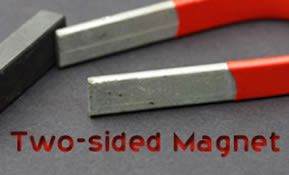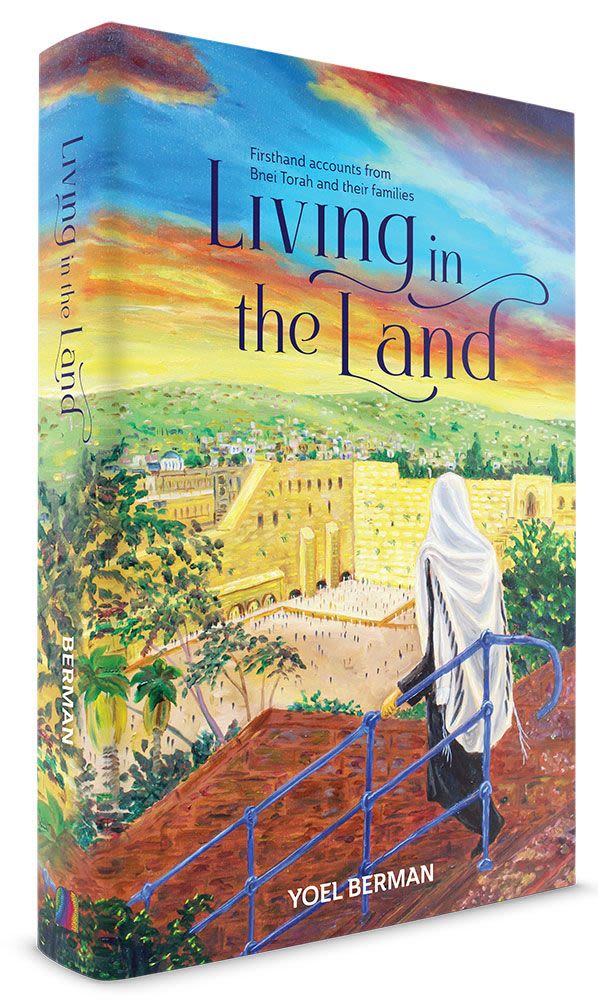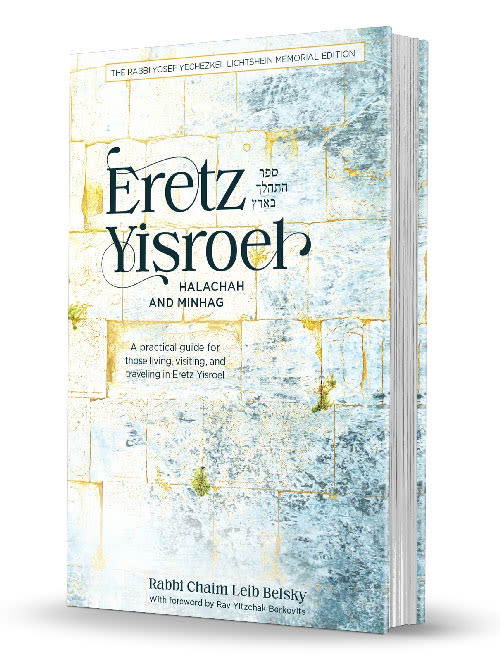
Longing and Joy
Shlomo and his family drove 500 kilometers across Finland, and then embarked on a ten-hour voyage from Turku to Stockholm, just to hear Dudu Fisher sing “Yerushalayim”…

Strangers No More, Part 16
I made sure that during every trip to the capital, I visited Rabbi Michael. Luckily, because of my different engagements, I had regular meetings in Helsinki, and my study schedule went smoothly. I have wonderful memories of these sessions with the rabbi. I always called to let him know in advance when we had trips coming up, in order to allow him to arrange his schedule. Once we were in Helsinki on a school trip at the museum when my phone rang. Rabbi Michael, in his spontaneous manner, was on the line. “Can you be at the synagogue in one hour – there will be a surprise for you.” I looked at my students, grown up, but still in need of a leader. I turned to my colleague. “I have to go and meet a friend, you lead the rest of the tour for the day, and I will meet you later at our lodging.” No problem! Full of curiosity, I walked determinedly towards the synagogue.
On the way I recalled his words. Did he mention something about a wedding? Approaching the Jewish quarter of Malmgatan, I saw crowds of beautifully-dressed people getting out of their cars. Many taxis and limousines seemed to be heading for the synagogue. I went inside to look for Rabbi Michael. I no longer felt as uncomfortable as I did during my first visit. Since then I had been to the synagogue a few times, sometimes with my wife, other times with the whole family. I always kept my kippa with me, the one Rabbi Michael gave me during my first visit. The time had come to put it on again.
There he was, in the crowd, talking to some of the visitors. I saw people I recognized from TV and parliament. It seemed to be a celebrity wedding, and all the Jews of Helsinki had gathered to celebrate. I did not belong there, nor was I a celebrity. But Rabbi Michael certainly treated me like one. “Now, my friend you are going to see a Jewish wedding like you have never seen before.” He was right; because this was the first Jewish wedding I had ever attended. The rabbi had promised a surprise, and he had certainly delivered on his promise. If it had not been for Rabbi Michael’s warmth and consideration, I would have felt very much out of place, but since everybody saw I was his friend, they probably assumed I was some celebrity too – they just couldn’t remember from where – so I mingled naturally in the crowd.
Later in the evening, I returned to the lodging where my students were staying, with a smile on my face and a secret in my heart. The secret of my first Jewish wedding. I couldn’t wait to tell my family about it.
Spiritually uplifting events were rare occasions during the years when we were living without a formal religion. How wonderful then was the news of Dudu Fisher’s visit to Sweden. We heard about the famous Israeli singer from Runa’s brother Bill, who lives in Uppsala, where Dudu was going to perform. We drove 500 kilometers across Finland, and then embarked on a ten-hour voyage from Turku to Stockholm. It was well worth the effort. What an evening! All these songs about Yerushalayim…. The Yiddishe Mama…Adon Olam…and Dudu’s rendition of Elvis’ “It’s now or never,” emphasizing the urgent need for the Jewish people to return to Eretz Yisrael. When I hear these songs, even from a rusty street singer, tears well in my eyes. Hearing them at this concert, from the synagogue cantor who became a Broadway artist, in a packed concert hall crowded with five thousand enthusiastic people, we felt as if we had been lifted to heaven. I believe God knew how lonely we were and how dry was our spiritual life. Just as early rains provide nourishment to the dry soil, so did this concert give life to our souls. It strengthened our desire for a Jewish life, a desire that had not yet been fulfilled, but was burning in our hearts. We would do whatever we could to ensure our connection to the people and the land.
The highlight for me of the whole conversion process was my Gilgal experience. No, I did not visit the biblical site near Jericho, but, I have my own connection to Gilgal. Just as the biblical Gilgal removed the disgrace of being slaves in Egypt, so did my Brit Milah (circumcision) do the same regarding my former church connection. After forty years in the desert, all the men who had not been circumcised on the way came under the knife of Joshua. “And after the whole nation had been circumcised they remained in the camp until they were healed. Then the Lord said to Joshua: ‘This day have I rolled away the reproach of Mitzrayim (Egypt) from off you.’” (Joshua 5:8–9). Or as another translation words it: “Today I have removed from you the disgrace of being slaves in Egypt.”
My Brit Milah had a similar meaning: it was a sign of my entrance into the Covenant of Abraham. But even more significant and concrete for me was how my circumcision served as a symbol of removing my past connection to a false church. Before a connection there is a separation; first exodus, then in-gathering. I had to leave my former attachment before I could connect to a new one. It all seemed to come together in the ritual act of circumcision, dating back to the moment when God commanded Abraham to make the first cut instituting this Covenant. A cut connecting one person and one nation to Himself, carrying promises of blessings to the whole world. This was my moment to be connected to the Covenant, to become a carrier of the obligations, but also of the blessings.
I was overcome with an enormous sense of blessed privilege. How could this be happening to me? I was not worthy of it. But I had heard my Master calling, and I was eager to answer. So it was with my conversion, beginning with the first critical questions about the Church, culminating in my Brit Milah. Now I had passed the point of no return. I had given my definite “yes” to the calling. After studying for about a year, we had reached the point of being welcomed into our new faith. Still it was regarded as a short study period. And truly it was all so new to us. I remember the first book Rabbi Michael gave me: Sefer HaChinuch, The book of mitzvah (commandments) education. I read and read it over and over, but I have to admit that it raised more questions than it provided answers. I was confronted with a multitude of questions about how to put into practice all of God’s commandments. In order to live a fully Jewish life you need to practice. The practical side of Judaism needs to be repeated and learned by imitating a teacher or a parent. This part of our education was missing since we lived so far away from any Jewish community. What we learned we started to practice to the best of our ability.
At our farewell party in Australia, years earlier, my wife had spoken about the biblical Ruth, not knowing how much of her own life would be a reflection of Ruth’s. Now, our family was gathered in the home of the Helsinki rabbi, preparing for our immersion in the mikvah (ritual bath). And Ruth’s story once more came to life.
We were choosing our Hebrew names. Rabbi Michael suggested my wife Runa take Ruth as her Hebrew name. To me he gave the name Shlomo, and I found no reason to object. Our daughters are Linda, who became Leah, Sara, who received the second name Rivka, Karolin who became Yardena and Josefin received the name Yudith.
Our naming process coincided with the time of Shavuot, when the Book of Ruth is read in synagogue. Ruth said to her mother-in-law Naomi: “Where you go, I will go and where you stay I will stay. Your people will be my people and your God my God.” When Naomi realized that Ruth was determined to go with her, she stopped trying to convince her otherwise, while the story ends differently for Ruth’s sister-in-law Orpa. Orpa also kept persisting that she wanted to go with Naomi to Eretz Yisrael, but shortly after we find her kissing Naomi goodbye, as she prepares to return to “her people and her gods.” Action speaks louder than words, and Judaism is a very practical religion in which beliefs are strengthened and affirmed through practice.
Throughout the long process, my wife and were in harmony along every step of the way – in our decision to leave the Church, convert, and finally make aliyah – growing together step by step. We never disagreed about our decisions, however far-reaching they were. We never thought of going back; we always cast our eyes forward, searching deeper into the Torah to fulfill the longing of our souls.
After my Brit Milah, it was time for us all to immerse in the mikvah. At the gathering afterwards in the Helsinki synagogue, the rabbi announced: “Now you are full members of the House of Israel.” Those melodic words still ring like sweet music in my ears, “a full member of the House of Israel.” He specifically pointed out the prohibition of doubting the authenticity of the conversion. What’s done is done. There were no first- or second-class Jews. Rather, the opposite is the case: there are obligations in the Torah to be especially hospitable towards converts, “because you yourselves were once strangers in a strange land.”
We were no longer “strangers,” but we were like newborn babies, learning new practices and skills, learning to live. This process will take a lifetime and is never complete. Growing and learning, studying Torah, practicing the mitzvot are all ongoing tasks. This is the path we had taken. It felt so fulfilling, knowing our future direction, knowing who we were. Now I could believe I had a Jewish soul, and I had to learn to know my soul, to give it nourishment. I was still wondering about the great mystery of how God gives souls; what is the soul exactly, when do we get it, and is it possible that we can receive a new one? For now, I left those issues aside and was happy to enjoy the statement that was still ringing happily in my ears, when the rabbi declared us members of the House of Israel.
I again looked at my old coin. To my joy the engraving was becoming clearer. I could see whose coinage it was.
To be continued.
(Strangers No More, by Shlomo Brunell. Reprinted with courtesy of Gefen Publishing House 2005 www.gefenpublishing.com)










Tell us what you think!
Thank you for your comment!
It will be published after approval by the Editor.